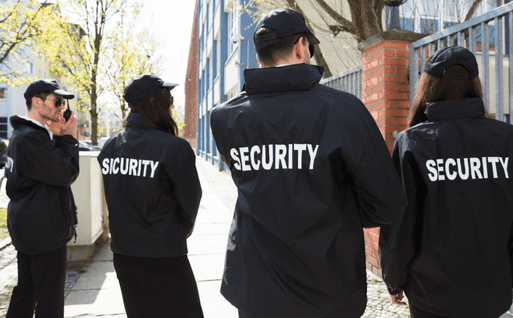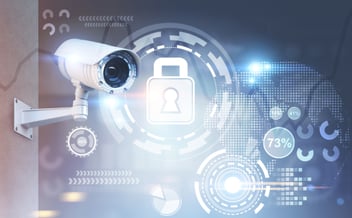

In today’s world, where security is a top priority, the diversity of roles within the security industry is essential to ensuring safety. From static security to event security, every type of security guard brings unique skills and expertise. However, assembling an effective team requires more than just hiring individuals—it calls for a strategic approach to team building. In this blog, we’ll explore the different types of security guards and provide actionable strategies for building a cohesive and efficient security team.
Introduction: The Importance of Security Guards in Today's Society
Security guards play a critical role in maintaining safety across various industries. Whether securing a property, ensuring smooth operations at events, or providing personal protection, these professionals are the backbone of modern security systems. However, simply having a team isn’t enough—their success depends on specialized knowledge, adaptability, and effective team collaboration. When selecting new employees, it is important to consider both technical skills and social competence. This is the only way to create a strong team capable of successfully overcoming security management challenges.
Types of Security Guards: An Overview of The Different Roles
- Static Security Guards
Static security guards remain stationed at a specific location, such as entrances, reception areas, or parking lots, to deter unauthorized access and monitor activity. Their primary duties include verifying credentials, maintaining logs, and responding to incidents within their assigned area. These guards are essential for ensuring the day-to-day safety of facilities, such as office buildings, universities , hospitals, and retail stores. - Mobile Patrol Officers
Mobile patrol officers cover larger areas by regularly patrolling on foot or in vehicles. Their primary goal is to identify potential threats, address suspicious activity, and provide a visible security presence to deter crime. Mobile patrols are ideal for campuses, industrial sites, or residential communities, where constant movement is necessary to ensure security over expansive spaces.
- Event Security Personnel
Event security personnel are responsible for maintaining order and safety during gatherings such as concerts, sports events, and private functions. Their tasks include managing access points, ensuring crowd control, and responding to emergencies or disturbances. These professionals are skilled in de-escalation techniques and are critical to creating a secure and enjoyable environment for attendees.
Strategies for Effective Team Building in The Security Industry
Creating a strong security team involves more than assembling individuals—it requires thoughtful strategies to ensure seamless collaboration and efficiency. Here’s how:
- Assess and Leverage Individual Strengths
Identify the specific skills and expertise of each team member, whether it’s technical knowledge, communication skills, or physical fitness. Assign roles that align with these strengths. - Comprehensive Training Programs
Develop training sessions that go beyond the basics, incorporating real-world scenarios, conflict resolution, and role-specific skills.
- Encourage Open Communication
Foster a culture where team members can share observations, concerns, and feedback. Use regular meetings to discuss updates and challenges.
- Establish Clear Roles and Responsibilities
Define roles explicitly to minimize confusion. For example, during an event, delineate who oversees crowd control versus emergency response.
- Invest in Technology
Equip your team with tools such as surveillance systems, communication devices, and incident management software to streamline operations.
- Regular Performance Reviews
Conduct periodic evaluations to identify areas of improvement and reward exceptional performance, motivating the team to perform at its best.
The Role of Communication and Cooperation Among Security Staff
Successful communication and cooperation between security staff is of great importance for efficiency in property protection and personal security. Different types of security personnel have specific tasks that require clear coordination. In the context of security services, be it event protection or facility security, it is essential that employees have a wide range of skills and use them effectively as part of a team. Intensive dialogue not only promotes trust between team members but also ensures a rapid response to unforeseen events.
Security companies benefit from an open communication culture, as they can significantly increase the security of their customers through targeted coordination. Understanding the different roles within a security service enables resources to be optimally utilized and synergies to be created. Effective cooperation is therefore the key to ensuring the highest security standards within a company.
Best Practices for The Selection and Integration of New Security Staff
The selection and integration of new security staff is of great importance for the quality and efficiency of security services. Different types of security guards bring specific skills that can vary depending on the area of operation. When recruiting, companies should make sure that candidates have relevant experience in guarding, property protection or personal security. It is advisable to create clear job profiles to make the right jobs appealing. During the integration process, comprehensive induction training is essential to ensure that new employees understand and implement company standards. Regular interaction between existing security staff and new recruits should also be encouraged to develop a strong team spirit. The combination of expertise and effective onboarding helps to ensure sustainable security in facilities and during events. A structured approach to team building therefore not only strengthens the capacities of security companies, but also the trust of customers in their services. In an increasingly digital world, it is advisable for security companies to make their customer reports available not only in paper form, but also digitally. Digital reporting offers numerous advantages, including
Conclusion: Successful Team Building as the Key to Security
The selection and integration of different types of security staff plays a central role in the success of a security service. Every company needs employees with specific skills tailored to different tasks, be it property protection, personal security or event protection. A clear division of roles within the team not only optimizes efficiency but also contributes to security in facilities and at events. Security companies should take care to recognize the strengths of their employees and make targeted use of them. This not only promotes the satisfaction of security staff but also ensures the effective protection of people and property. In addition, open contact should be maintained with employees in order to receive regular feedback and make adjustments where necessary. Through this strategic team building, security services can fulfil their mission in the best possible way and ensure a high level of security.
Subscribe



